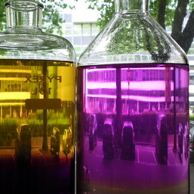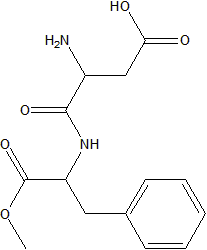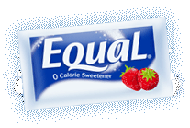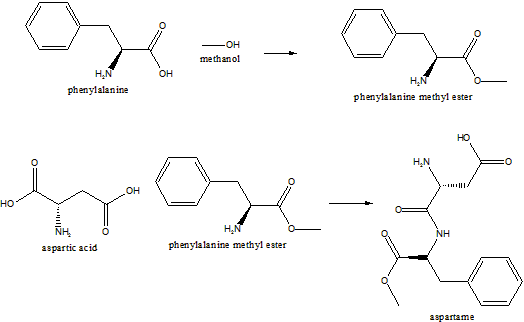It:Aspartame
Introduction
Aspartame is an artificial sweetener made from a amino acids that is suitable for use by diabetics. It is sold under several trade names, mainly Equal, or Nutrasweet. Aspartame is also commonly used in soft drinks, vitamin pills and table condiments as an alternative to traditional carbohydrate based sweeteners as it is many more times sweeter than sugar for the same caloric value.
History
Aspartame was discovered by James Schlatter of G.D Searle & Company while working on an anti-cancer drug. He has accidentally synthesised it and discovered it when he licked his finger and was surprised to find it sweet. A long fight with the FDA began as the company tried to get FDA's approval for mass consumption of this sweetener. The FDA finally approved Aspartame for use in 1981, opening up a new market for artificial sweeteners. The patent of Aspartame expired in 1991 and the market is now hotly contested between several major players, namely the NutraSweet Company and other manufacturers such as Ajinomoto, Merisant and the Holland Sweetener Company.
Synthesis
Aspartame is made from 2 naturally occurring amino acids, phenylalanine and aspartic acid, both of which are chiral in nature. More specifically, it is the methyl ester of phenylalanine which is used to form the dipeptide which gives Aspartame. In order for Aspartame to work is that it must be able to bind to the receptors on the tongue, and therefore the stereochemistry of the precursor molecules are important. In this case, both the precursors required are the L optical isomers.
Known Health Issues
Aspartame is broken down by the body into Methanol and Formaldehyde, both which are thought to be toxic to the body. However it has been argued that the amounts of both substances produced are insufficient to cause substantial harm to the body. Phenylalanine is also a product of the breakdown of Aspartame and is dangerous to people suffering form phenylketonuria,PKU. People suffering from PKU lack the enzymes to breakdown Phenylalanine, leading to accumulation which can cause mental retardation.
References
Merck Index, 11th Edition, 861.
http://en.wikipedia.org/wiki/Aspartame
http://www.chemcases.com/nutra/nutra2.htm
http://redpoll.pharmacy.ualberta.ca/drugbank/cgi-bin/getCard.cgi?CARD=NUTR00046.txt



